Collembola - "Springtails" in MA Cranberry May 2023
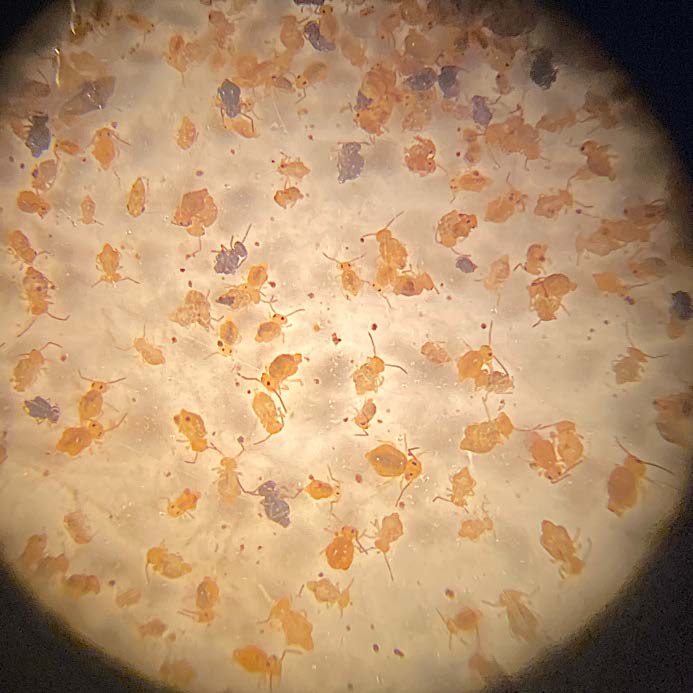
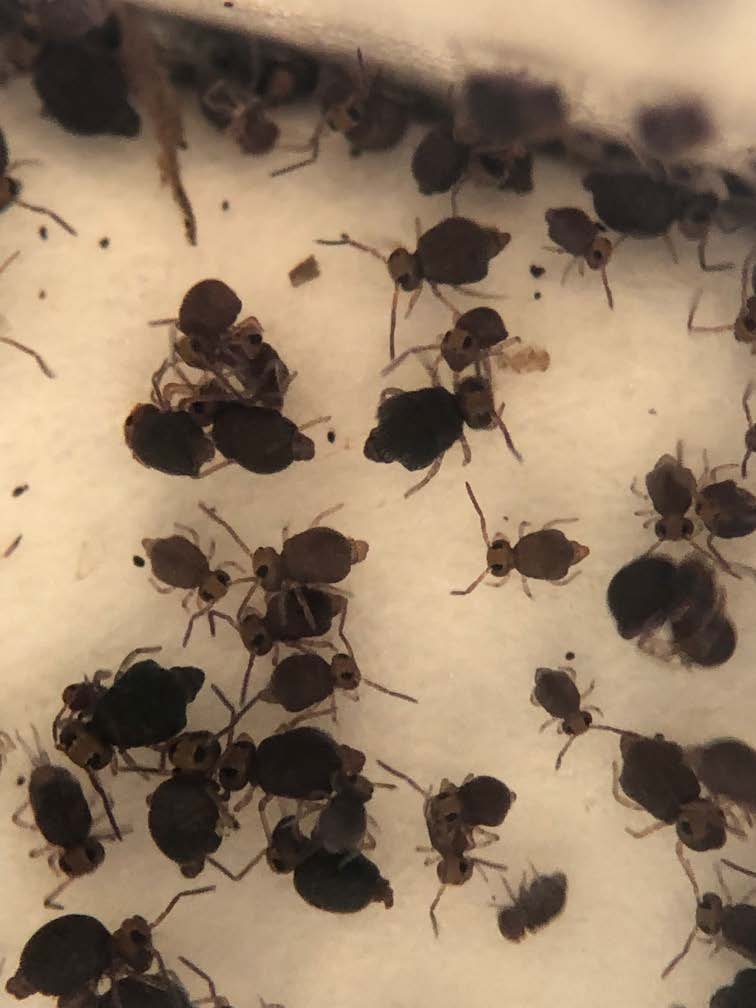
Magnified collections of two species of Collembola
Collembola, commonly known as ‘springtails,’ are easily collected in the sweep net. They are harmless in cranberry. They are typically minute; most are smaller than the head of a pin. Recognition of Collembola in the sweep net is important because they resemble a couple of serious cranberry pests, e.g. blunt-nosed leafhopper nymphs (immatures) and black bug nymphs.
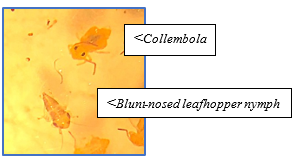
A close up image comparing a Collembola and a blunt-nosed leafhopper nymph
There are 100s of species of springtails worldwide, and we see several in MA cranberry beds. Different species vary in body shape and color but most of the species in cranberry are globular.



The three images above all feature a different species of greatly magnified globular-type Collembola
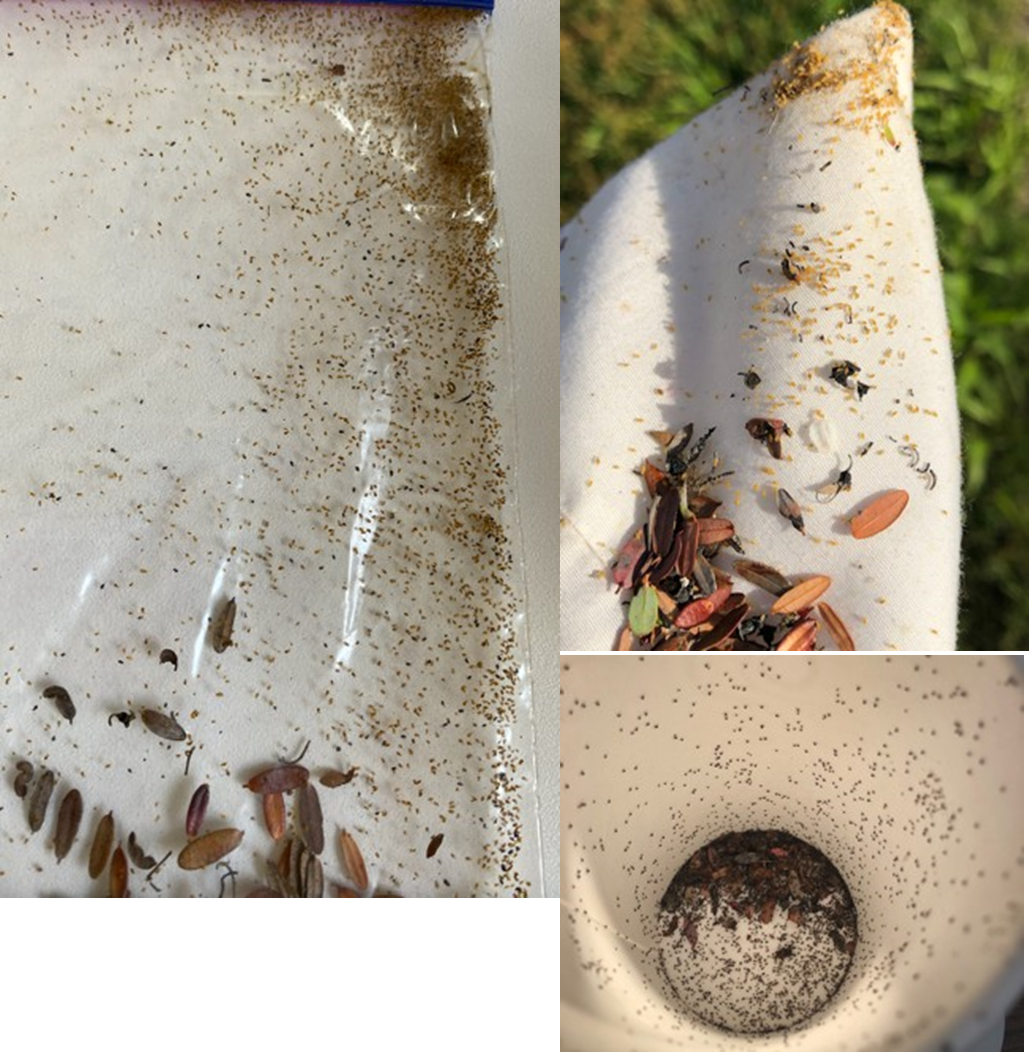
Cranberry sweep net collections show different species of Collembola held in a plastic bag, a sweep net, and a paper coffee cup. All images show how abundant & tiny they are.
Collembola are known to eat bacteria, lichens, algae, fungi, and/or decaying vegetation and can be important in nutrient cycling in the soil. They prefer damp environments.
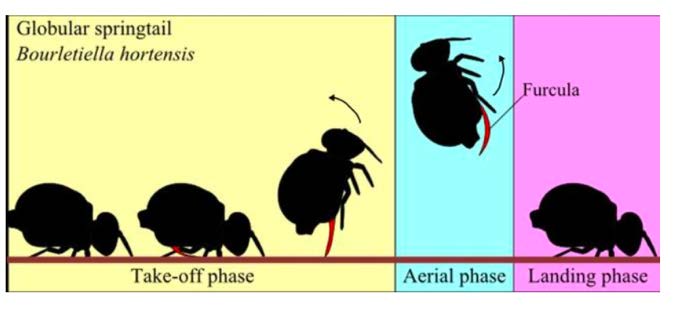
S. Sudo et al. 2013. J. of Aero Aqua Bio-mechanisms
The common name ‘springtail’ comes from its novel way of jumping using a forked structure (furcula) on its underside. When the furcula is released, the springtail is tossed into the air. If you put spring sweep net contents into a plastic bag, you can hear the jumping Collembola plinking inside.
Additonal Facts
While most Collembola are considered beneficial or harmless to crops, there is an unusual species that is a pest of legumes. 'Snow fleas’ are some species of Collembola that are seen in aggregations on the surface of snow.
Great video about springtails from BBC: https://www.youtube.com/watch?v=OwOL- MHcQ1w